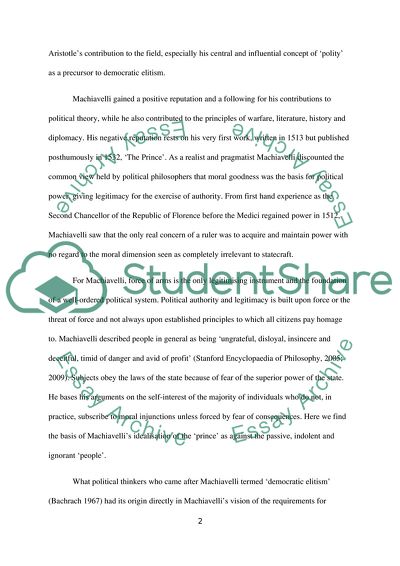Cite this document
(The Impact of Machiavelli and Aristotle on Political Thought and Essay, n.d.)
The Impact of Machiavelli and Aristotle on Political Thought and Essay. Retrieved from https://studentshare.org/politics/1731094-compare-and-contrast-machiavelli-and-aristotle
The Impact of Machiavelli and Aristotle on Political Thought and Essay. Retrieved from https://studentshare.org/politics/1731094-compare-and-contrast-machiavelli-and-aristotle
(The Impact of Machiavelli and Aristotle on Political Thought and Essay)
The Impact of Machiavelli and Aristotle on Political Thought and Essay. https://studentshare.org/politics/1731094-compare-and-contrast-machiavelli-and-aristotle.
The Impact of Machiavelli and Aristotle on Political Thought and Essay. https://studentshare.org/politics/1731094-compare-and-contrast-machiavelli-and-aristotle.
“The Impact of Machiavelli and Aristotle on Political Thought and Essay”. https://studentshare.org/politics/1731094-compare-and-contrast-machiavelli-and-aristotle.


